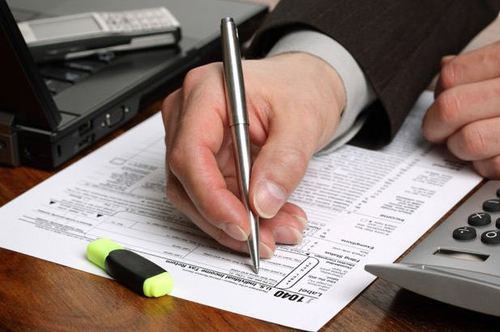
I have a
high regard for accountants. They have an extremely difficult job. In order to
maximize tax savings for their clients, they need to understand and interpret
an incredibly complicated Internal Revenue Code. Former U.S. congressman John
Hostettler once said, “The Internal Revenue Code and regulations add up to 1
million words and is nearly seven times the length of the Bible.”
It's not
surprising that few accountants look outside the code for tax-saving
opportunities. That’s unfortunate. There’s a world of tax-saving possibilities
related to investing. If your accountant is not familiar with them, your
registered investment advisor should be alerting you to them.
The failure
to focus on the tax efficiency
of your investments can significantly affect your returns. According to a 2008
Vanguard publication, "Tax-Efficient Equity Investing: Solutions for
Maximizing After-Tax Returns," taxes have the potential to take the
“biggest bite” out of total returns. How much of a bite? According to research
by Joe Dickson and John Shoven, “Taxes and Mutual Funds: An Investor
Perspective," taxes can reduce the returns of a mutual fund by as much as
a whopping 25 percent.
1. Harvest your tax losses. No one is happy when their
investment goes down in value. However, tax-loss harvesting permits you to sell
investments at a loss and use those losses to offset gains on other
investments. Here’s an example of how it works.
Assume you
purchased a fund for $10,000 on January 1 and it declined to $5,000 on March 1
of the same year. If you decide to "harvest" the loss, it will be
characterized as a short-term loss since the fund was held for less than one
year. Assuming a 35 percent ordinary federal income tax, your tax savings would
be $1,750. You will have reduced your economic loss to $3,250.
Tax-loss
harvesting is not simple. Initially, it involves determining whether the loss
is substantial enough to harvest. You also need to assess the problem of
exiting the market and missing out on potentially large gains. You can avoid
this problem by complying with the "wash-sale" rule, which permits
you to sell a stock or mutual fund and buy a replacement stock or fund, as long
as the replacement is not considered "substantially identical" in
nature.
2. Invest in retirement accounts. Take advantage of a 401(k) or
403(b) plan offered by your employer. The funds you invest in these plans are
pretax. You will defer taxes until you start receiving distributions. Don't
forget to contribute on your own to a traditional individual retirement account
or (if you qualify) to a Roth IRA. With a Roth, you will be contributing with
after-tax funds, but your withdrawals will be tax-free.
3. Allocate your investments. The way you allocate funds
between your taxable and nontaxable accounts can have a meaningful impact on
your after-tax returns. Funds that pay out meaningful taxable distributions of
dividends and capital gains should typically be placed in a tax-deferred
account. Taxable bond funds should also be placed in a tax-deferred account.
This will permit you to reinvest distributions and avoid recognizing those
distributions as ordinary income.
Real estate
investment trusts and most alternative investments should generally be held in
tax-deferred accounts to defer taxes on distributions.
Active
trading of your investments is generally a bad idea because it runs up
transaction costs, which reduces returns. However, if you must actively trade,
put those investments in a tax-deferred account so you can buy and sell without
tax consequences.
Individual
stocks that you intend to keep for a long time should be placed in an after-tax
account. Index funds and stock index exchange-traded funds are also good
candidates for your after-tax account.
When
deciding how to allocate investments between your taxable and nontaxable
accounts, taxes should not be your sole consideration. Investments in
tax-deferred accounts have restrictions on withdrawals. You may incur a penalty
if you withdraw these funds earlier than permitted. You want to be sure you
have enough funds in your taxable account so you can meet your needs, without
accessing your retirement accounts.
4. Buy index funds. As a general rule, index funds
(where the fund manager seeks to replicate the returns of the designated index
and there are less transaction costs) that track a broad index (like the
Standard & Poor's 500 index) and comparable ETFs are very tax-efficient.
Most actively managed funds (where the fund manager attempts to beat the returns
of the designated benchmark) trade more than index funds, incurring higher
taxes. They are less tax-efficient.
The same
Vanguard study calculated the tax costs of actively managed funds and index
funds. The study measured the tax cost for 15 years ended Dec. 31, 2007. It
found the median tax cost of domestic actively managed funds was higher, by
0.83 percent annually, than the tax cost for index funds.
This
significant difference in tax costs is a major reason why the same study found
that "indexing has historically provided higher after-tax returns than
have actively managed mutual funds.”
Here’s the
bottom line: If tax efficiency is important to you, consider investing in index
funds, ETFs or passively managed fund.
Well, you must ensure that you have a trusted accountant on your company. You must hire the best accountant like we have in our company. They are Established Accountants in Robina. And you can also hired them on this website for more details.
ReplyDelete